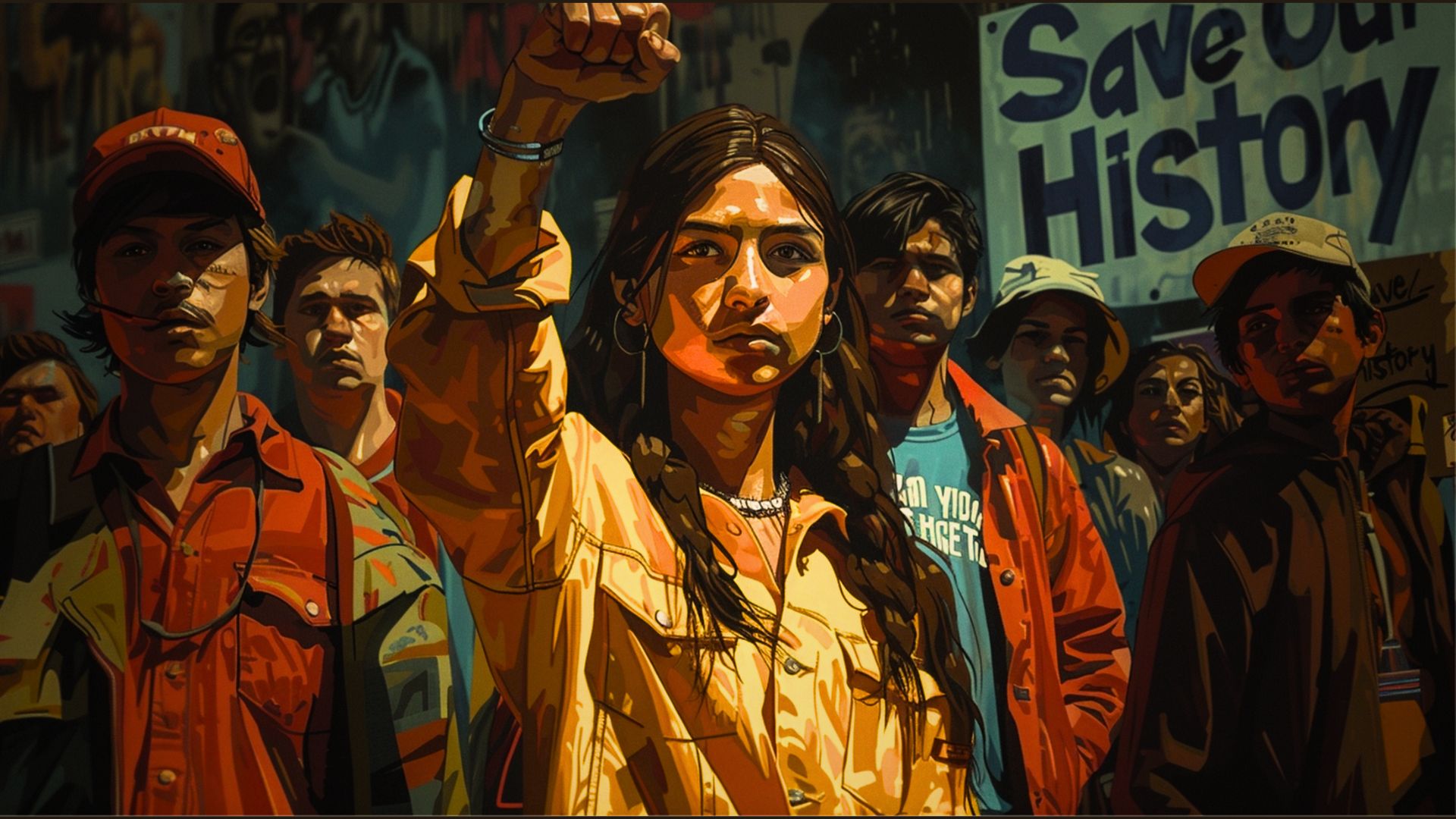In a powerful discussion on Hard Knock Radio, host Davey D sat down with Dr. Nolan L. Cabrera, a nationally recognized scholar specializing in racism, anti-racism, whiteness, and ethnic studies. Dr. Cabrera, author of the book Banned!: The Fight For Mexican American Studies in the Streets and in the Courts, is also a professor at the University of Arizona, provided a critical breakdown of the landmark battle over Mexican American Studies (MAS) in Tucson and the broader fight against educational censorship.
Arizona’s War on Ethnic Studies: A Blueprint for Today’s Education Battles
The conversation opened with a reflection on the growing pushback against Diversity, Equity, and Inclusion (DEI) programs and ethnic studies in schools. Davey D highlighted the historical context of this fight, noting that while recent book bans and curriculum restrictions seem new, Arizona was “ground zero” for these education battles over a decade ago.
Dr. Cabrera reminded listeners that the struggle over Mexican American Studies in Tucson started in the early 2000s, when racial disparities in student achievement were glaringly evident. “White students were massively outperforming their Latino counterparts, even though we’re in a 65–70% Latino district,” he explained. Activists pushed for the implementation of MAS as a way to make education relevant and engaging for students.
What followed was a highly successful curriculum, which, according to statistical analysis, significantly improved graduation rates and test scores. However, the program’s success made it a target for conservative politicians, most notably Arizona’s State Superintendent of Public Instruction, Tom Horne, who led the charge to dismantle it.
The Legal Battle: How HB 2281 Banned Mexican American Studies
Tom Horne, later followed by John Huppenthal, aggressively pushed HB 2281, a law that banned classes that supposedly:
- Promoted the overthrow of the U.S. government
- Encouraged resentment toward a race or class
- Were designed for a specific ethnic group
- Advocated ethnic solidarity over individualism
These vague parameters allowed state officials to attack MAS without clearly defining why it was problematic. The law enabled the state to withhold 10% of school district funding, creating an ultimatum that forced Tucson Unified School District to eliminate the program. Despite its effectiveness in improving student success, MAS was shut down completely.
The Broader Implications: A Playbook for Restricting Education
Davey D and Dr. Cabrera explored how Arizona’s ban on MAS set a dangerous precedent that is now being replicated across the country. The rhetoric used to attack MAS—claiming it was anti-white, un-American, and divisive—is now being employed in the national fight against DEI programs and critical race theory (CRT).
Dr. Cabrera pointed out that this wasn’t just about Tucson. “They would have found a way to get rid of it no matter what,” he stated, explaining how conservative politicians use education laws as tools for racial subjugation. He connected the tactics used in Arizona to contemporary attacks on Black Studies, Indigenous Studies, and other ethnic studies programs in states like Texas, Florida, and Kentucky.
The Resistance: Lessons for Today’s Fight
Despite the state’s crackdown, resistance to the MAS ban was fierce. Dr. Cabrera highlighted the collective pushback from students, teachers, professional organizations, and national activists. The American Educational Research Association, the National Association of Chicana and Chicano Studies, and other academic bodies supported the fight against HB 2281. Artists like Lalo Alcaraz used their platforms to keep national attention on Arizona’s racist policies.
A key takeaway from the MAS fight, Dr. Cabrera emphasized, is that negotiation is not an option. “These attacks are not about curriculum tweaks. They want complete elimination of these programs,” he warned. That’s why today’s resistance must be proactive and strategic.
Avoiding the Pitfalls of Siloed Activism
A major issue in the current fight against education censorship, Davey D and Dr. Cabrera agreed, is the lack of cross-community collaboration. “They’re attacking Black Studies, Indigenous Studies, and Mexican American Studies at the same time, but often the responses are disconnected,” Davey D observed.
Dr. Cabrera concurred, explaining that conservatives exploit these divisions. “They’ll find a Latino face to push anti-ethnic studies policies, just like they did in Tucson. We saw the same thing with Ward Connerly during the anti-affirmative action battles,” he said. To combat this, he urged stronger solidarity between marginalized communities and a unified front in resisting these educational bans.
Final Thoughts: What Needs to Happen Now
As the conversation wrapped up, Dr. Cabrera made a passionate call to action:
- Recognize that this is a fight, not a debate. There’s no room for appeasement or compromise.
- Call out book bans and curriculum restrictions for what they are: censorship.
- Bridge the gaps between different activist movements. If communities of color fight separately, they lose together.
- Hold centrist liberals accountable. Many prefer social tranquility over justice and hesitate to take action until it’s too late.
- Push for legal and grassroots resistance. Lawsuits, public pressure, and grassroots activism must work in tandem.
Dr. Cabrera’s book, Banned: The Fight for Mexican American Studies in the Streets and the Courts (Cambridge University Press, 2025), provides a deep dive into this crucial battle for academic freedom and social justice.

Where to Follow Dr. Nolan Cabrera
For more insights, follow Dr. Cabrera at @chicanostocracy on Twitter, Instagram, and Facebook or visit chicanostocracy.com.
The fight for ethnic studies and inclusive education is far from over. As censorship spreads, communities must stay vigilant, organized, and committed to ensuring that history is told accurately and fully. The lessons from Tucson’s battle over Mexican American Studies provide a roadmap for resisting today’s attacks on academic freedom. Now, it’s time to act.


Leave a Reply